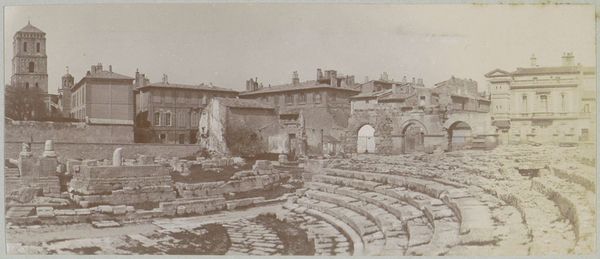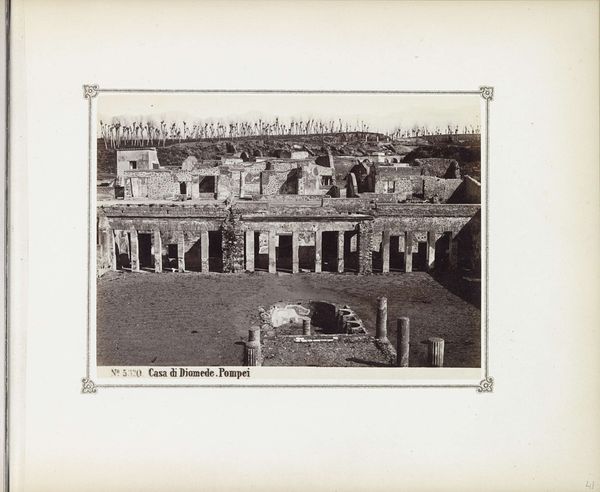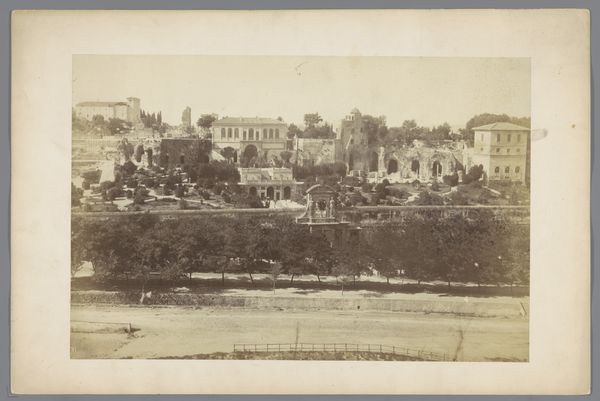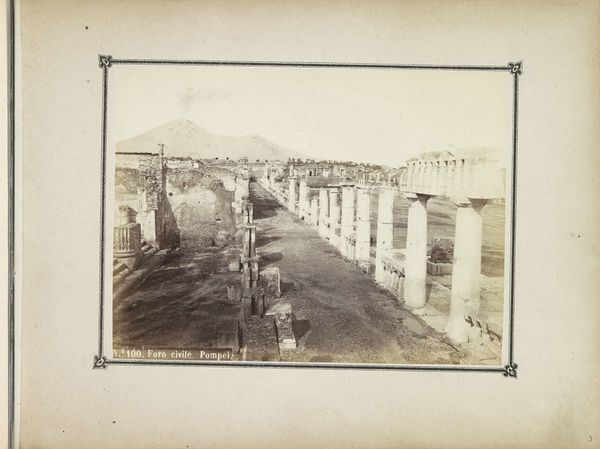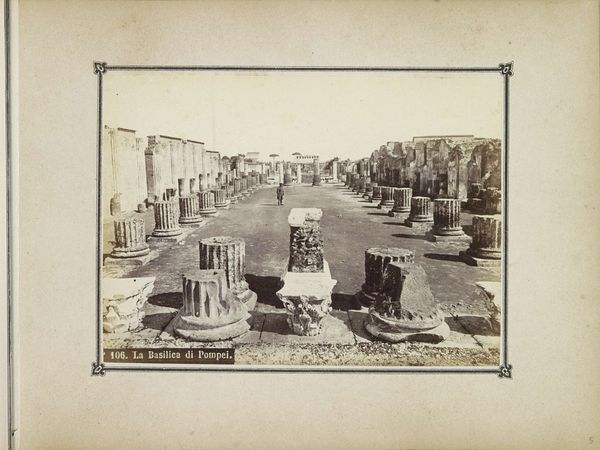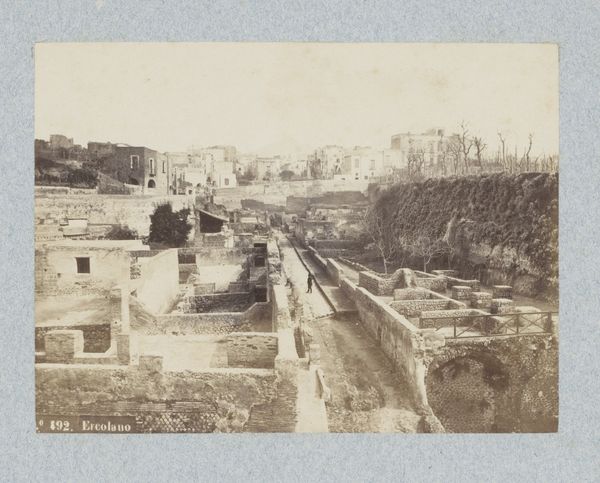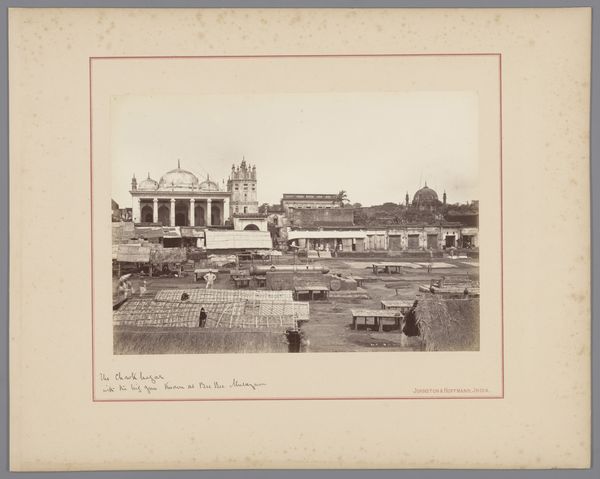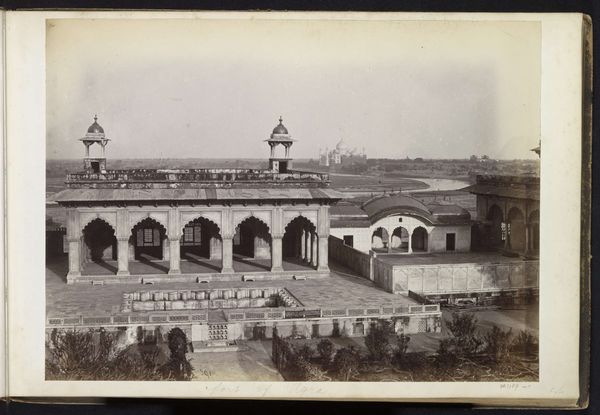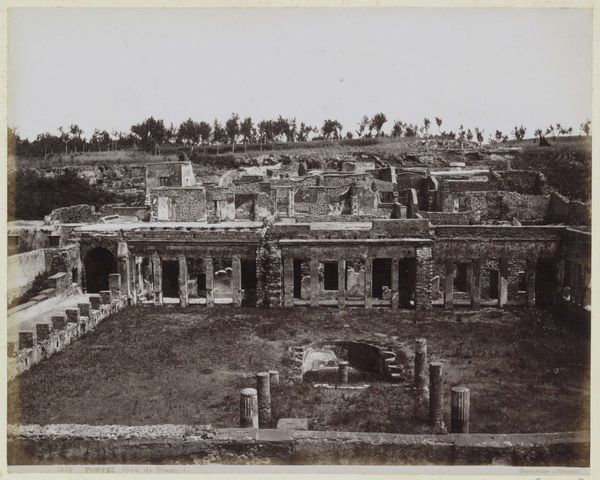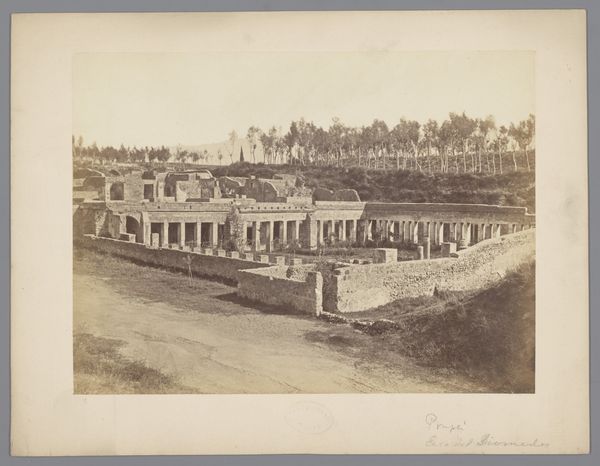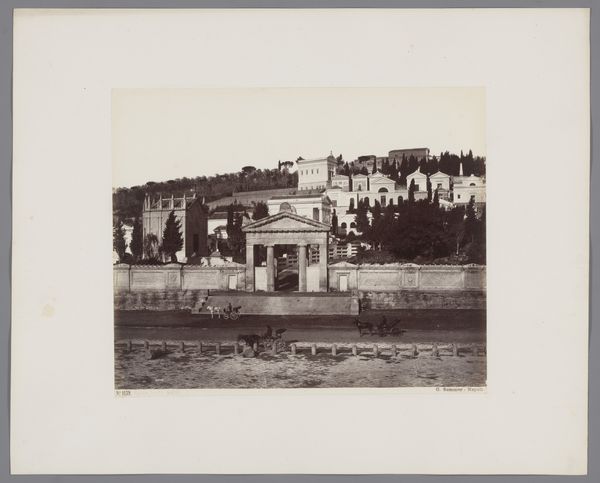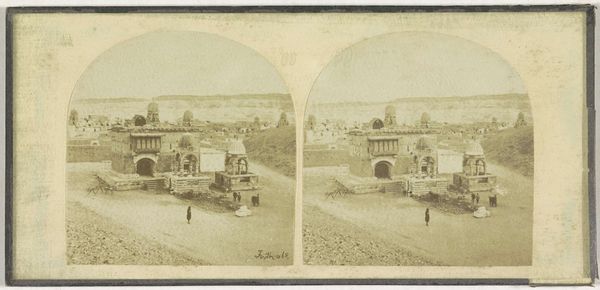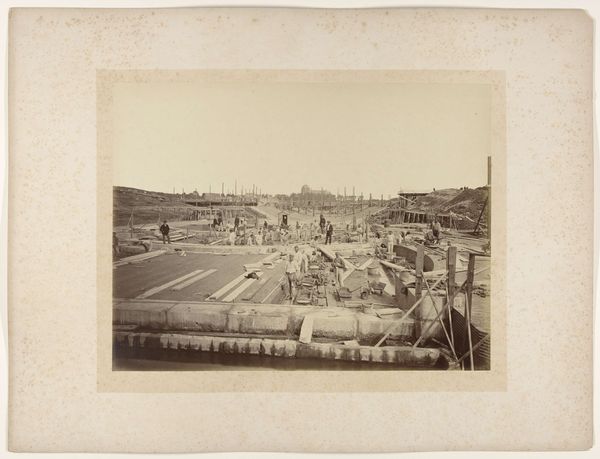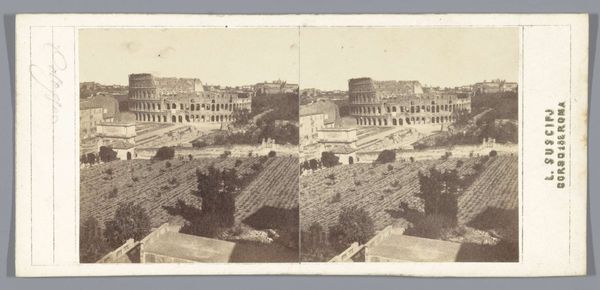
photography, albumen-print
#
landscape
#
photography
#
ancient-mediterranean
#
albumen-print
Dimensions: height 106 mm, width 141 mm
Copyright: Rijks Museum: Open Domain
Curator: This albumen print by Roberto Rive captures a haunting stillness. Dating from between 1860 and 1900, it shows the remnants of the House of Diomedes in Pompeii. It resides here with us, at the Rijksmuseum. Editor: My immediate sense is one of quiet devastation. The light is muted, the tones sepia, and those colonnades standing almost like mournful sentinels over what’s lost. It feels both grand and incredibly sad. Curator: Indeed. It speaks to the fleeting nature of civilization, doesn’t it? But also to resilience. Consider that those very colonnades, that structure, survived Vesuvius. This image documents that survival and also documents early photographic practice, as part of a larger Grand Tour tradition. Editor: The "Grand Tour" context is fascinating, framing this image not just as a document but also as a status symbol of cultural education, something collected, possessed. Pompeii becomes a spectacle, mediated through the photographer's lens, reproduced for parlors across Europe. Does the name 'Diomedes' conjure other narratives? What stories did this house, this name hold? Curator: The name 'House of Diomedes' brings the entire Greek mythos right into an Italian excavation! The imagery attached to the name Diomedes -- his heroism, his struggles – likely amplified the impact of such photos, lending it a weight beyond just the archeological. The ruins become more than stone. Editor: Right. Even now, thinking of those narratives enriches the visual experience. We see beyond just the 'landscape' to an actual lived-in world…a dramatic story that froze in time when Vesuvius erupted, both burying and, paradoxically, preserving it. It’s almost a moral lesson, packaged within classical aesthetics. Curator: Precisely. It's a visual memento mori, expertly composed. Looking at the careful placement of the camera to capture so many columns really helps illustrate the grand scope of the original house and garden. It brings into relief themes of legacy, ruin, and remembrance. Editor: Rive has presented a cultural inheritance, an invitation to consider where we were, where we are now, and what echoes of past lives continue to speak to us today. Curator: A sobering and evocative testament to the past. Thank you for giving us an opportunity to revisit this powerful print together!
Comments
No comments
Be the first to comment and join the conversation on the ultimate creative platform.
